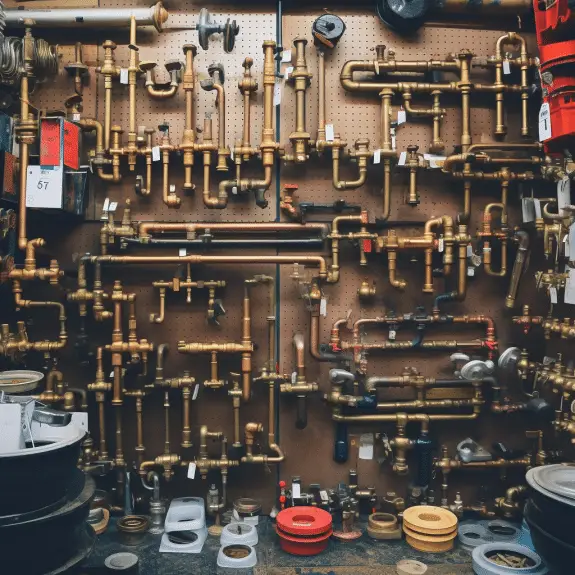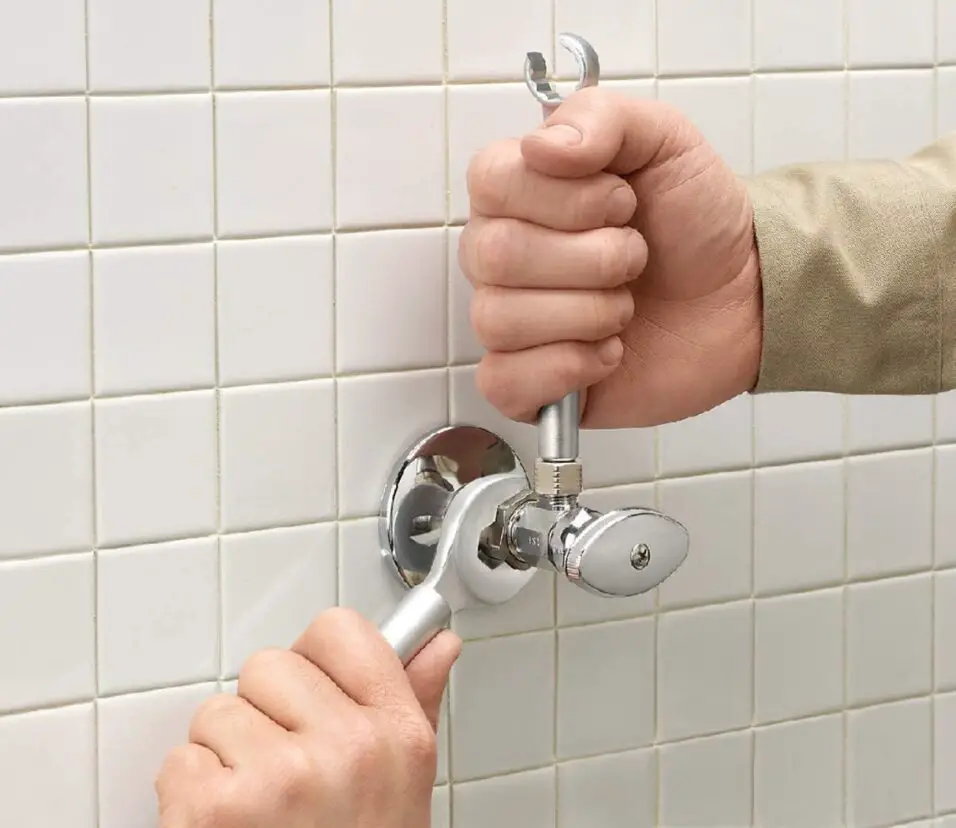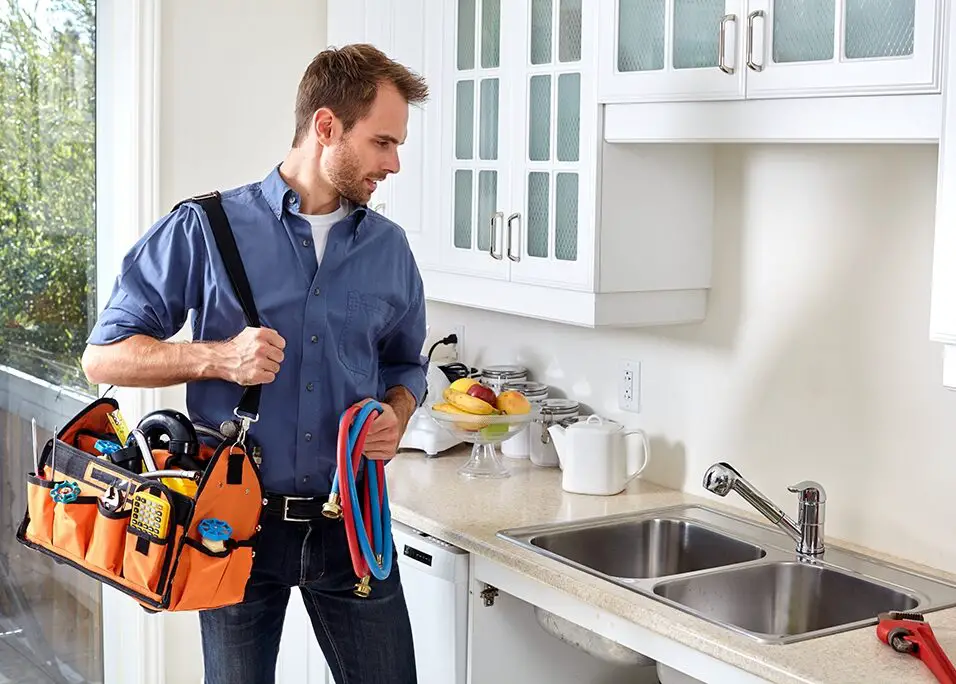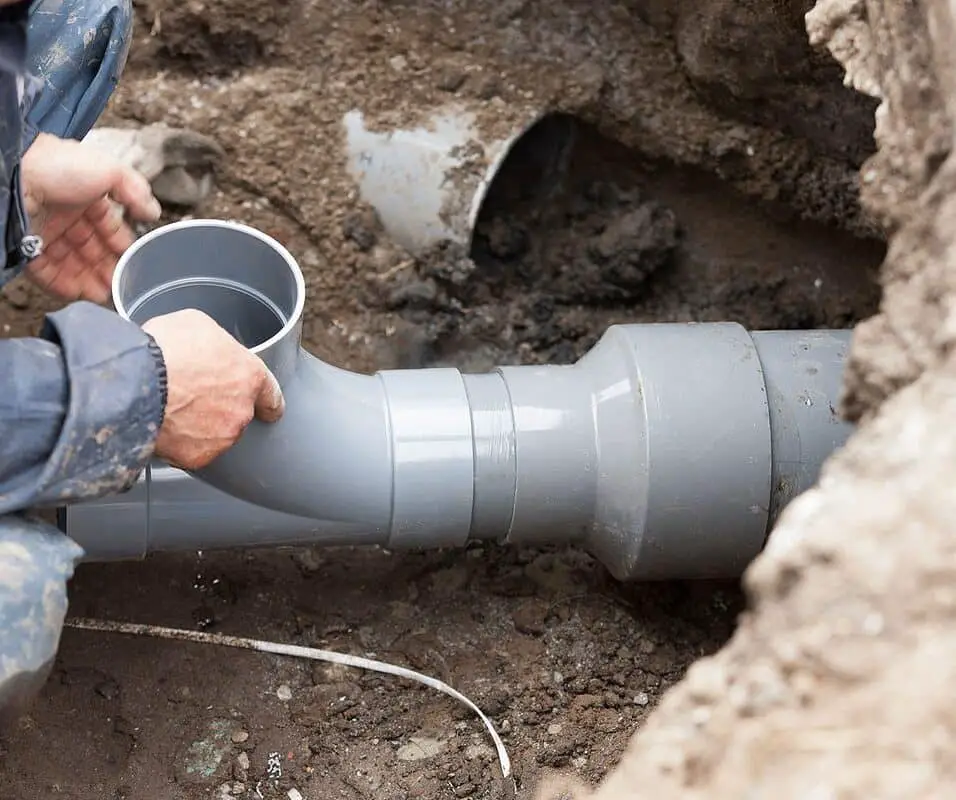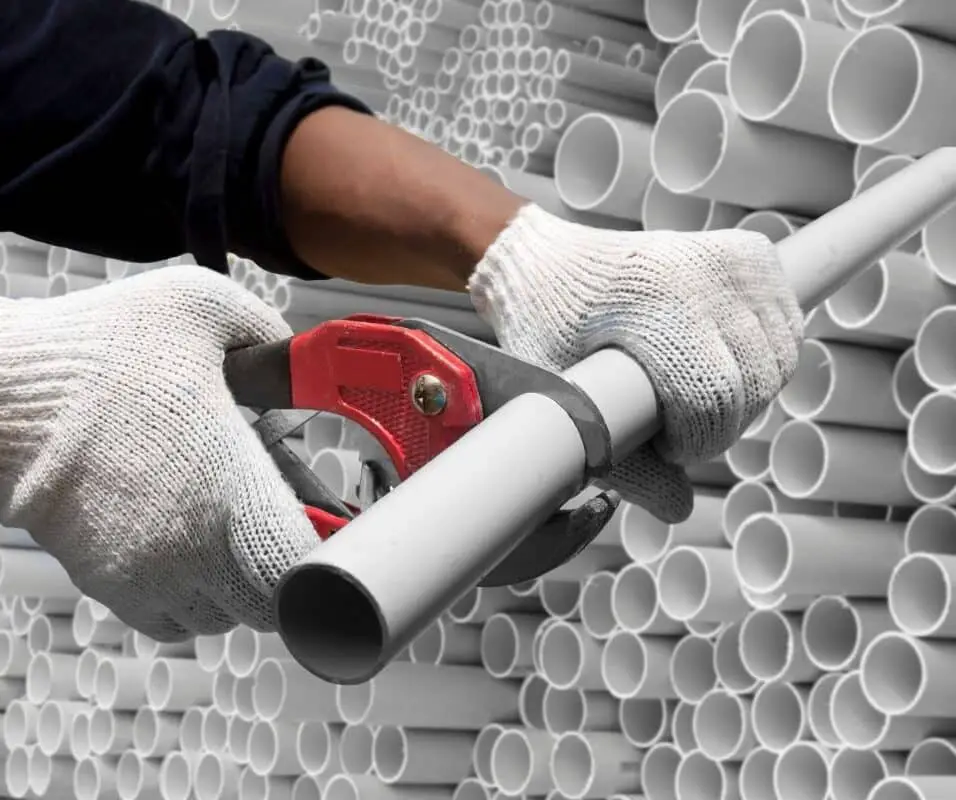Is Copper Plumbing Good
Introduction
Copper plumbing has long been regarded as one of the most reliable and durable materials for plumbing systems. With a history dating back thousands of years, copper has consistently proven its worth in providing safe and efficient water supply and distribution. In this article, we will explore the advantages and benefits of copper plumbing, discussing why it continues to be a popular choice among homeowners and professionals alike.
One of the primary reasons copper plumbing is considered good is its exceptional durability. Copper pipes are known to have a long lifespan, often lasting 50 years or more. This resilience is attributed to copper’s resistance to corrosion and its ability to withstand high pressure and temperature fluctuations, making it ideal for both residential and commercial plumbing applications.
In addition to its durability, copper plumbing offers excellent performance in terms of water quality. Unlike some other materials, copper does not leach harmful substances into the water supply. Furthermore, copper plumbing is highly resistant to fire damage, making it a secure choice for homes and buildings. In the event of a fire, copper pipes will not burn or release toxic fumes, helping to prevent the spread of flames and potentially saving lives.

Is Copper Plumbing Better Than Plastic?
Copper is less susceptible to corroding and its rigid nature means it lasts a long time. Copper resists degrading when exposed to ultraviolet light, making it ideal in areas that see exposure to natural sunlight.
For years, copper and plastic plumbers have argued for their favored material. Several factors show that copper plumbing has advantages over plastic.
Copper plumbing provides durability and endurance first and foremost. Copper pipes have endured for generations, frequently lasting decades without replacement. Plastic pipes, albeit cheap, can wear out quickly, especially in high-temperature or pressure situations.
Copper piping resists corrosion well. Plastic pipes may decay in acidic or mineral-rich environments, therefore this is crucial. Copper pipes are also UV-resistant, making them ideal for outdoor applications. Due to its fire resistance, copper piping is popular for safety. Copper pipes do not create poisonous gasses in a fire, unlike plastic pipes when heated.
Why Do Plumbers Use Copper Pipes?
Durable: Copper plumbing tubes are the most popular and reliable in industrialized countries. Copper resists corrosion in most subsurface settings, making it valuable. It can withstand stress due to its strength.
Copper is popular with plumbers for various reasons. The following factors make copper pipes popular:
Copper pipes have a heritage of durability. They outperform other materials in corrosion resistance, water pressure tolerance, and leak and burst danger. Stability extends plumbing system life and reduces repairs and replacements.
Copper is non-combustible and safe for plumbing. Copper pipes do not catch fire or emit toxins. This feature enhances building and occupant safety.
Due of its thermal conductivity, copper transfers heat well. Maintaining water temperature and avoiding heat loss helps hot water systems. Plumbing technicians choose copper pipes for heat conduction.
Copper is antibacterial. Clean water is essential in hospitals, schools, and food service.
How Long Does Copper Plumbing Last?
Copper plumbing is renowned for its exceptional durability and longevity, making it a favored choice for many homeowners and plumbers. When properly installed and maintained, copper pipes can last for several decades, providing reliable and leak-free plumbing systems.
On average, copper plumbing can have a lifespan of 50 to 70 years or even longer. Similarly, extreme temperature fluctuations or excessive water pressure can impact the lifespan of copper pipes. Proper installation and regular maintenance play crucial roles in extending the lifespan of copper plumbing.
What Is Better Than Copper Plumbing?
PEX pipe is not only cheaper than copper but more durable too. Copper pipes can last anywhere from six months to the life of a building.
Two notable alternatives to copper plumbing are PEX (cross-linked polyethylene) and PVC (polyvinyl chloride) pipes.
PEX plumbing has gained popularity in recent years due to its flexibility, ease of installation, and resistance to freezing. PEX pipes are highly flexible, allowing for easy maneuverability around corners and obstacles, reducing the need for numerous fittings. They are also corrosion-resistant and have excellent freeze resistance, making them suitable for colder climates.
PVC plumbing is another alternative to copper, primarily used for drainage and sewage systems. PVC pipes are lightweight, easy to handle, and resistant to chemicals, making them ideal for waste disposal. They are also relatively inexpensive and have a long lifespan when installed correctly. PVC pipes are not suitable for hot water applications, as they have lower heat tolerance compared to copper or PEX.
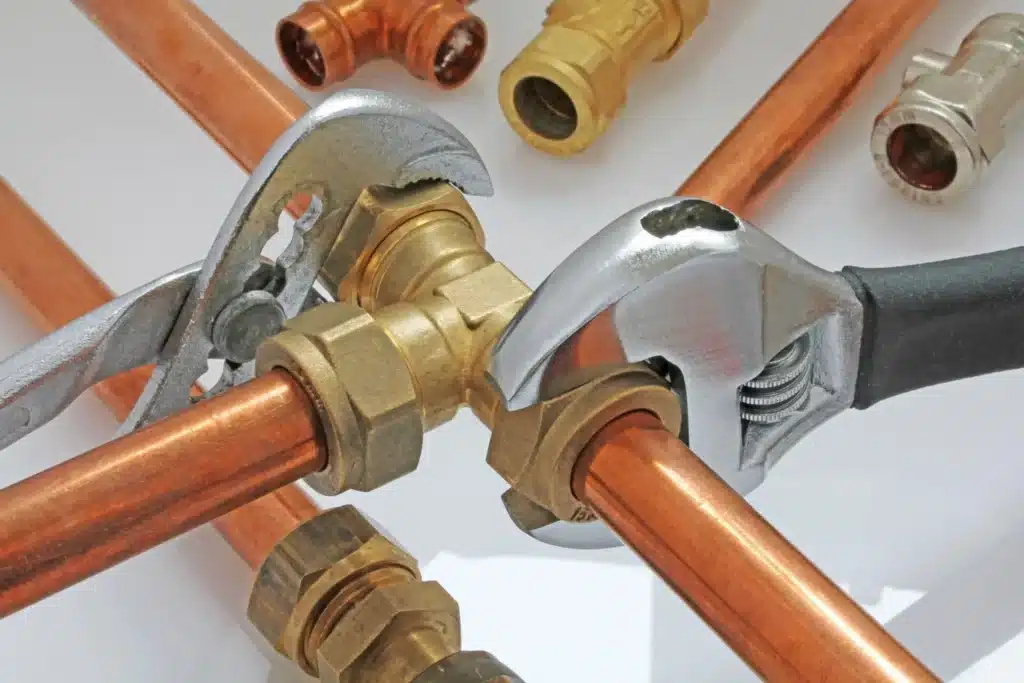
Why Replace Copper Plumbing?
Copper has many benefits to recommend, including the fact that it is durable and resistant to corrosion. However, copper pipes do not last forever. They may become clogged up with mineral scale, or so pitted by acidic water that they eventually leak or burst.
While copper plumbing is known for its durability and longevity, there may be situations where replacing copper pipes becomes necessary or advantageous. Several reasons may warrant the replacement of copper plumbing:
Corrosion: Although copper is generally corrosion-resistant, certain conditions can accelerate the corrosion process. Aggressive water, high mineral content, or exposure to chemicals can lead to the deterioration of copper pipes over time. If extensive corrosion is present, replacing the pipes may be necessary to prevent leaks, water damage, or compromised water quality.
Leaks and damage: Copper pipes can develop leaks due to factors such as improper installation, aging, or physical damage. Persistent leaks can cause water damage to the surrounding areas, leading to mold growth, structural issues, or costly repairs. In such cases, replacing the damaged sections or the entire plumbing system may be the best course of action.
Upgrading to modern plumbing systems: As plumbing technology advances, homeowners may choose to upgrade their plumbing systems for improved efficiency, water conservation, or additional features. Replacing copper plumbing with newer materials, such as PEX or PVC, can provide benefits such as easier installation, enhanced flexibility, or compatibility with newer fixtures and appliances.
Remodeling or renovation: During home renovations or remodeling projects, it may be necessary to replace copper plumbing to accommodate changes in layout, fixture locations, or building codes. This provides an opportunity to install more efficient or tailored plumbing systems that align with the updated design and functional requirements.
Which Plumbing System Is Best?
Copper and PEX are the most common pipe materials used in homes. Copper pipes are durable, corrosion-resistant, and can be used for hot and cold water. PEX seems to be replacing copper pipes at a high rate since it is less expensive, more flexible, and easier to install.
Determining the “best” plumbing system depends on various factors, including individual needs, preferences, budget, and the specific requirements of the project. Different plumbing systems have their own advantages and disadvantages, so it’s important to consider these factors when making a decision.
Copper plumbing: Copper pipes are known for their durability, longevity, and resistance to corrosion. They are a reliable choice for both hot and cold water supply lines and have a proven track record. However, copper plumbing can be more expensive and may require skilled labor for installation.
PEX plumbing: Cross-linked polyethylene (PEX) plumbing has gained popularity due to its flexibility, ease of installation, and resistance to freezing. PEX pipes are cost-effective, can be easily maneuvered around obstacles, and are suitable for both hot and cold water supply lines. However, PEX may not be suitable for outdoor use and can be affected by exposure to UV rays.
PVC plumbing: Polyvinyl chloride (PVC) plumbing is commonly used for drainage and sewage systems. PVC pipes are lightweight, affordable, and resistant to chemicals. They are a popular choice for non-pressurized applications, but not suitable for hot water supply lines.
CPVC plumbing: Chlorinated polyvinyl chloride (CPVC) plumbing is a variant of PVC that is specifically designed for hot water supply lines. CPVC pipes are resistant to high temperatures and are widely used in residential and commercial applications.
What Is Copper Plumbing?
Copper plumbing refers to the use of copper pipes and fittings for the distribution of water in residential and commercial buildings. It has been a popular choice for plumbing systems for many years.
Copper plumbing refers to the use of copper pipes and fittings in a plumbing system. Plumbing purposes for centuries due to its excellent durability, corrosion resistance, and reliability. Copper plumbing systems are commonly found in residential, commercial, and industrial buildings.
Copper pipes used in plumbing are typically made from a copper alloy that contains small amounts of other elements to enhance its properties. The most common types of copper pipes used in plumbing are Type M, Type L, and Type K, which vary in wall thickness and are suitable for different applications based on pressure requirements.
Copper plumbing offers several advantages. Firstly, copper pipes have a long lifespan and can last for several decades when properly installed and maintained. They are resistant to corrosion, which helps prevent leaks and ensures a reliable plumbing system. Copper plumbing also has excellent heat conduction, making it ideal for hot water supply lines.
Another benefit of copper plumbing is its safety. Copper is a non-combustible material, so it does not contribute to the spread of fire. Additionally, copper pipes do not release toxic fumes when exposed to high temperatures, providing an added level of safety in case of fire incidents.
Is Copper Plumbing A Good Option For Plumbing Systems?
Yes, copper plumbing is widely regarded as a good option for plumbing systems for several reasons.
Here are several reasons why copper plumbing is highly regarded:
Durability and Longevity: Copper pipes are known for their exceptional durability, with a lifespan that can exceed 50 to 70 years. They can withstand high water pressure, resist corrosion, and are less prone to leaks compared to other materials. This longevity translates to a reliable plumbing system with reduced maintenance needs.
Corrosion Resistance: Copper is highly resistant to corrosion, making it suitable for various water conditions and reducing the risk of pipe degradation. This resistance ensures a continuous flow of clean and uncontaminated water, which is especially important in areas with aggressive water or high mineral content.
Safety: Copper is a non-combustible material, making it a safe choice for plumbing systems. In the event of a fire, copper pipes do not contribute to the spread of flames and do not release toxic fumes. This aspect enhances the overall safety of a building and its occupants.
Heat Conduction: Copper has excellent thermal conductivity, allowing it to efficiently transfer heat. This property is particularly advantageous for hot water supply lines, as it helps maintain water temperature and reduces energy consumption. Copper pipes are less likely to experience heat loss compared to other materials, ensuring hot water reaches the desired destination effectively.
Does Copper Plumbing Require Maintenance?
Copper plumbing is relatively low maintenance. Regular inspections and addressing any issues promptly can help prolong the lifespan of the copper plumbing system. However, like any plumbing system, copper plumbing may require some maintenance to ensure its optimal performance and longevity.
One of the primary maintenance tasks for copper plumbing is periodic inspections. Checking for any signs of leaks, corrosion, or damage is essential to address issues early on and prevent potential water damage. Inspections can also include verifying proper connections, ensuring adequate support for the pipes, and identifying any potential areas of concern.
Flushing the plumbing system is another maintenance practice that can help remove sediment and mineral buildup that may accumulate over time. Flushing the system can help maintain optimal water flow and prevent clogs.
Additionally, it is important to monitor water quality. If you notice any changes in water quality, such as discoloration or metallic taste, it is advisable to have the water tested and address any potential issues promptly.

Conclusion
Copper plumbing unquestionably stands as a commendable choice for various plumbing applications. Its inherent qualities and proven track record make it a reliable and beneficial option for homeowners and professionals alike. The exceptional durability of copper pipes ensures longevity, often lasting for several decades without corrosion or degradation. This reliability minimizes the need for frequent repairs and replacements, saving both time and money in the long run.
Moreover, copper plumbing ensures excellent water quality by not leaching harmful substances into the water supply. It is a safe and reliable material that consistently delivers clean and uncontaminated water to households and commercial establishments. The fire-resistant nature of copper further enhances its appeal. In the unfortunate event of a fire, copper pipes do not contribute to the spread of flames or release toxic fumes, adding an extra layer of safety to buildings and potentially saving lives.
The versatility of copper pipes, with their ease of bending and manipulation, allows for seamless installations and reduces the risk of leaks. This flexibility makes copper plumbing an efficient choice for complex plumbing systems, ensuring optimal water flow and minimizing the chances of costly water damage.




